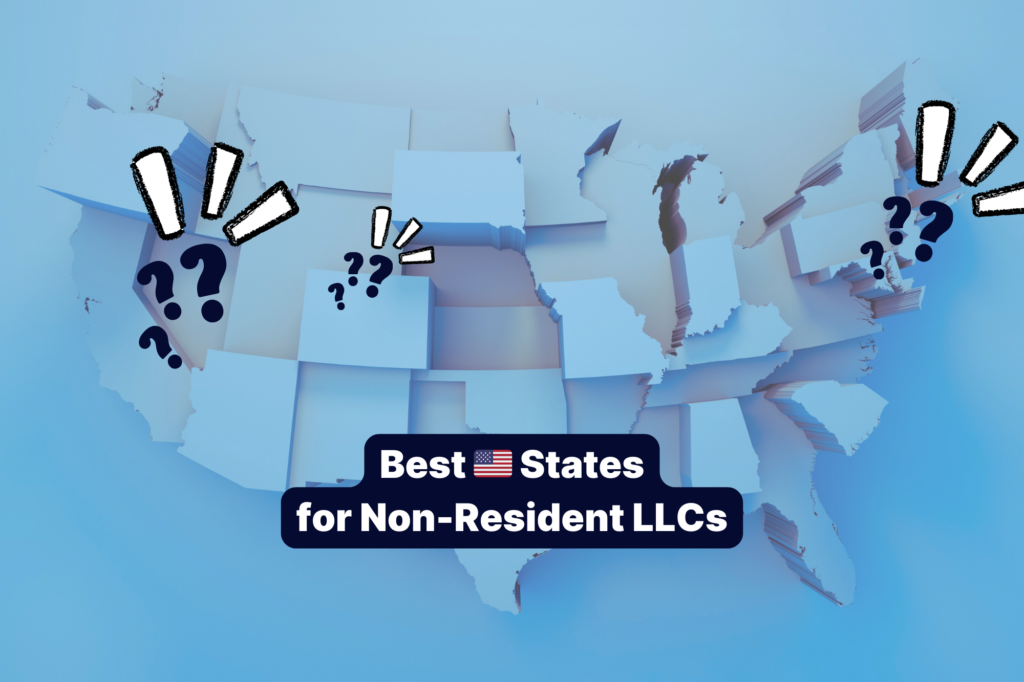Introduction
Starting a business in the United States is a strategic move for non-US residents seeking to tap into a robust market with a wealth of opportunities. As part of your business journey, one of the first critical decisions is choosing the right business structure. For most non-US entrepreneurs, the decision comes down to two popular options: Limited Liability Company (LLC) and C-Corporation (C-Corp). Each has its own set of advantages and considerations, and your choice can significantly impact your business operations, tax obligations, and growth potential. Let’s explore the differences to help you determine which structure might be the best fit for your unique needs.
Understanding the Basics: LLC vs. C-Corp
LLC (Limited Liability Company)
An LLC is a flexible business entity offering personal liability protection to its owners, known as members. It is popular among small businesses and startups due to its simplicity and fewer formalities.
Key Points:
- Liability Protection: Members are generally not personally responsible for the company’s debts.
- Tax Flexibility: Profits and losses can be passed through directly to members’ personal tax returns, avoiding double taxation.
- Ease of Management: Less complex structure with fewer corporate formalities compared to a corporation.
C-Corp (C-Corporation)
A C-Corp is a more complex structure favored by larger businesses planning to scale and attract investments. It is a separate legal entity where the owners are shareholders.
Key Points:
- Liability Protection: Shareholders are not personally liable for corporate debts.
- Potential for Growth: Ability to raise capital through stock sales makes it attractive for investors.
- Taxation: Subject to double taxation – corporate income is taxed at the corporate level, and dividends are taxed as personal income.
Key Considerations for Non-US Residents
Tax Implications
LLC: For non-residents, LLCs have pass-through taxation, which can help avoid double taxation, but members may face withholding taxes on US-sourced income.
C-Corp: While C-Corps deal with double taxation, they benefit from established tax treaties with other countries, potentially reducing withholding taxes on dividends.
Regulatory Compliance
LLC: Easier compliance with fewer filing requirements; ideal for businesses looking for operational flexibility.
C-Corp: Higher compliance requirements due to the need to maintain corporate formalities like board meetings and annual reports.
Investment and Growth Potential
LLC: Best suited for small to medium-sized businesses not immediately seeking substantial outside investment.
C-Corp: Preferred by venture capitalists and external investors, making it suitable for startups aiming for significant growth or considering an IPO.
Access to Capital
LLC: Raising capital might be limited to private funding methods like loans and personal investments, sufficient for some but restrictive for others.
C-Corp: Offers robust avenues for capital through stock offerings, making it easier to fund large-scale expansions.
Making the Right Choice for Your Business
To decide the best option, consider your business goals, the level of complexity you’re willing to manage, and your long-term plans. If you aim for quick setup with flexible management and tax advantages, an LLC might be ideal. Conversely, if you’re planning rapid expansion and attracting investors, a C-Corp could be the better path.
Conclusion
As a non-US resident entrepreneur, selecting the optimal business structure is foundational to your success in entering and thriving in the US market. Both LLCs and C-Corps offer distinct benefits, and the right choice depends on your specific business objectives, growth aspirations, and financial strategies. Consulting with a professional advisor can provide personalized insights to ensure your business structure aligns effectively with your strategic vision. At Clemta, we specialize in assisting international entrepreneurs with seamless company formation services in the USA. Whether you’re leaning towards establishing an LLC or a C-Corp, our expert guidance ensures you make informed decisions for smooth operations and sustainable growth. Contact us today to learn more about how we can support your business journey in the United States.







